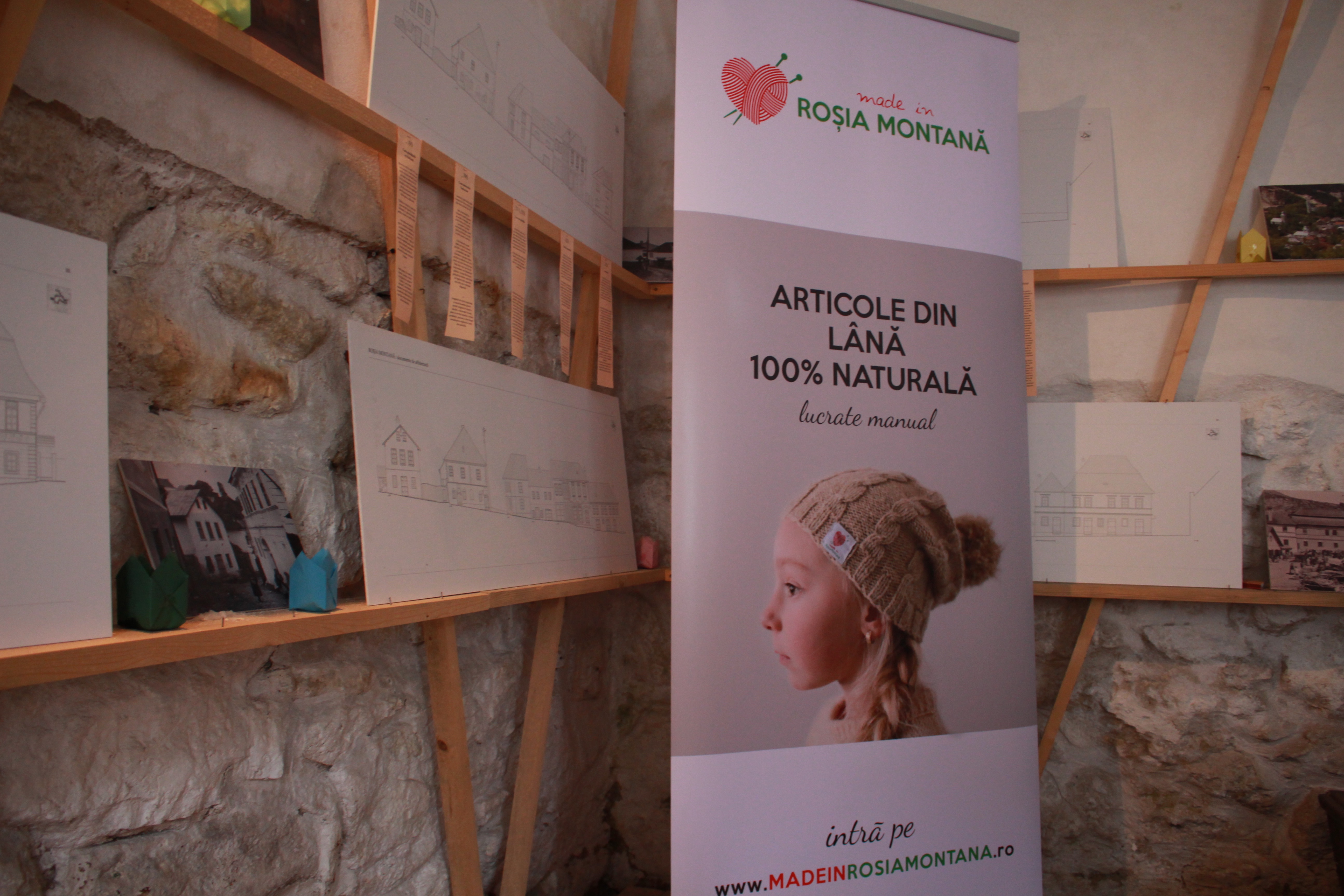Please support our coverage of grassroots democratic movements and become a supporter of rabble.ca.
If Tică Darie would live in Canada he would likely be on some “30 under 30” most famous or most something list. But in Roșia Montană, Tică Darie is just Tică Darie. One of the guys trying to make the town “work” through an alternative and sustainable way of doing business that is not related to mining. Roșia Montană is Romania’s oldest mining settlement. It recently gained international attention after it battled a Canadian mining company pursuing an open pit gold drilling project in the area.
I met Tică about a month and half ago when I visited the small town. Forgetting and remembering are quite interrelated processes for me these days yet I remember perfectly the day I visited Roșia Montană. It was one of those rainy and cold summer days that carries out the weight of an entire wet week and equally disperses it into each bone chilling drizzle that touches your skin.
I was talking with someone from a local non-profit organization. When I entered the room I have seen a few pairs of wool socks forgetfully left on the couch.
“Are you selling the socks?” I asked. “I know these socks. And the store. The wool store. I read about them online.”
“No, not me” he said. “It’s Tică who trades them. Once we finish I’ll send for him.”
“Tică, come down. You have a not-to miss appointment.” This word, “appointment,” gets taken very seriously in the East. Everything is an appointment. From a casual meeting, to a rendezvous-type encounter, to some serious business talks. I was patiently waiting for Tică to descend for our appointment.
“Come,” he said, once we passed the introductions phase. “I got the keys to the parochial house. But first I will show you something else.” We walked for about two minutes straight to a big house behind the parish. “Here it is. The ‘Adopt a House’ program. Two guys from Bucharest got it. To renovate.”
“They bought it?” I asked.
“No, no, they are restoring it, just it. They know what they’re doing. Artists. They volunteered to fix it as part of the program.”
The “Adopt a House” program in Roșia Montană was established with the aim of connecting locals with organizations and people who would help them restore the cultural patrimony in the area. The idea was to refurbish historical buildings and offer them back to the community at a somewhat high(er) value on cultural and touristic grounds. Seems that 52 volunteers from over six countries have already participated in the program. Tică showed me every room of the house. It was beautiful. He explained in detail how the refurbished rooms used to look, what were the changes and what were the transformations to be made next. When we left, the Bucharest guys pulled in. They did look like artists indeed.
“Now we can go see the socks,” Tică said. He unlocked the door of the big parochial house. “You know, the parish was against the project. They really supported the campaign. Now they are giving us space for this business. We can store everything here, the wool, the socks themselves, the promotional materials, as well as all the signage and pamphlets. I will show you everything we have.”
Tică came up with the “Made in Roșia Montană” idea of selling wool made garments manually sewed by local women. Regular socks, yoga socks, cute hats and scarfs. Off-white, beige and grey. Old style red-tiptoes and red-heels looking socks. I was taken back to the childhood spells. To the old communist times when electricity and heat had a 6 p.m. cut off period and the practice of warming the body was almost ritualistic in itself. The red-tiptoes and red-heel wool socks were always an essential. I do miss those times. Occasionally. The predictable time when one knows exactly what to expect.
“When we started this we didn’t have any idea about wool,” Tică continued. “We learned a lot. We spent time with the women in the village. We went to some wool training workshops. Now we are pushing them to sew even more delicate and snugger. Leaner. We can do even better. But I am assaulted with requests. Everything we do is through Facebook, through Messenger. All the ordering, which is mainly from abroad. They’re not expensive you know, but we couldn’t have them cheaper. It takes a lot of work to do them. 100 per cent natural wool.”
I bought some socks and a hat for myself and diversified with other items for all my Romanian girlfriends from back home in Toronto.
“So this is what we are trying to do,” Tică said. “We need to think about ways to make this community work. To make it sustainable in a way that is not related to mining. So people will stay.” Tică locked the parish and we left. His online store is easy to find.
Meanwhile, in this month and half, the Canadian mining company that was pursuing the project — Gabriel Resources LTD — submitted an arbitration request to the World Bank’s International Centre for Settlement of Investment Disputes. It is suing the Romanian state for stalling the project, claiming the entire value of their prospective (lost) investments. This is roughly estimated at four billion dollars.
Please support our coverage of grassroots democratic movements and become a supporter of rabble.ca.



